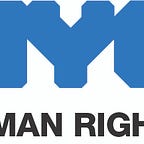Every New Yorker should stand up to racial discrimination
This op-ed was penned by Carmelyn P. Malalis, Commissioner/Chair of the NYC Commission on Human Rights, and originally appeared in the New York Amsterdam News on March 3, 2017. For more information on the NYC Commission on Human Rights, visit nyc.gov/humanrights
A young Black woman looking to rent an apartment in Brooklyn finally identified a place she liked on Craigslist. She met the agent, toured the apartment and started to fill out a rental application. The next day, however, the agent told her the apartment was taken and offered to show her another apartment in a predominantly Black neighborhood. Suspecting discrimination, the woman asked her white friend to inquire about the same apartment. The agent told him the apartment was still available and offered him the lease.
Sadly, this kind of racial discrimination isn’t shocking to people of color. It happens every day, in every borough, to people of every income level — whether it’s a young Black man who is followed in a store, a Black mother passed up by a cab or a Black employee who hears a slur from a customer. And victims often feel like no one will listen or actually take action to stop racism.
But there is something they can do about it. Victims can report discrimination to the NYC Commission on Human Rights, the city agency that fights discrimination, which can get money damages for victims and order violators to pay heavy fines for discriminating against others.
The Commission is currently investigating more than 300 cases of racial discrimination on behalf of New Yorkers, including discrimination in the workplace, housing and public places around the city. In 2016 alone, the Commission increased the number of investigations into race and color discrimination by 32 percent, filing more than 230 cases. In fact, racial discrimination made up the second largest area of complaints at the NYC Commission on Human Rights, comprising more than 15 percent of all claims, the lion’s share (67 percent) filed by Black New Yorkers.
The woman above who was denied an apartment filed a complaint with the Commission, which investigated and settled her case, forcing the management company to pay her $6,000 in damages and undergo training on the NYC Human Rights Law.
The Commission also worked with Cynthia Jordan to get her the justice she sought. Jordan, a young Black mother, was discriminated against while trying to catch a cab uptown with her two daughters. Before she could even get in the cab, the driver locked the doors and told her he was “off duty.” Seconds later, she saw him pick up two white women up the street. The Commission settled her case, awarding her $7,000 in damages and fining the driver $7,000. “I just wanted to let [my daughters] know that you don’t just have to just take it,” Jordan said to a local newspaper. “I’ve been taking it for years. It’s not fair.”
The Commission also helped Lindora Foster, a Black bank teller, who filed a complaint with the Commission after her employer made her monitor Black co-workers more than other employees. The Commission settled her case, forcing the employer to pay $15,000 in damages to Foster and ordering anti-discrimination training for management.
But not everyone in New York City knows they are legally protected by one of the strongest anti-discrimination laws in the country, the NYC Human Rights Law, which is why the Commission has increased its outreach to communities to educate them about their rights, including protections against bias-based profiling by law enforcement, and asks all New Yorkers to report instances of discrimination when they witness it. The Commission is also proactively educating employers, business owners and landlords about the law to prevent future acts of discrimination, including a soon-to-launch workshop dedicated specifically to discrimination based on race and color.
As our news cycles are flooded with national and local reports of bias attacks and hate-filled vandalism, it’s more important than ever for New Yorkers of every color, race and creed — Black, Caucasian, Asian, Hispanic, Muslim, Christian, Jewish and agnostic — to stand up and fight discrimination wherever and whenever it occurs, from the smallest micro-aggressions to the most blatant act.
If you see something, say something and report it to the Commission by calling 311 and asking for Human Rights or call the Commission directly at 718–722–3131.
Allowing racist acts to continue unreported or unchallenged sends a message to discriminators that their actions are acceptable and to victims that no one cares. Racial discrimination is not only illegal in NYC but is contrary to the spirit of diversity and inclusion that makes New York City a beacon for human rights both at home and abroad.
Carmelyn P. Malalis is the Commissioner and Chair of the New York City Commission on Human Rights, the agency charged with enforcing and educating on the New York City Human Rights Law.
For more information on the NYC Commission on Human Rights, visit nyc.gov/humanrights
Learn how to get help if you’ve been the victim of racial discrimination
Stay tuned to sign up for our upcoming workshop dedicated to discrimination based on race and color
Keep up-to-date on all things human rights in NYC by signing up for our monthly newsletter
